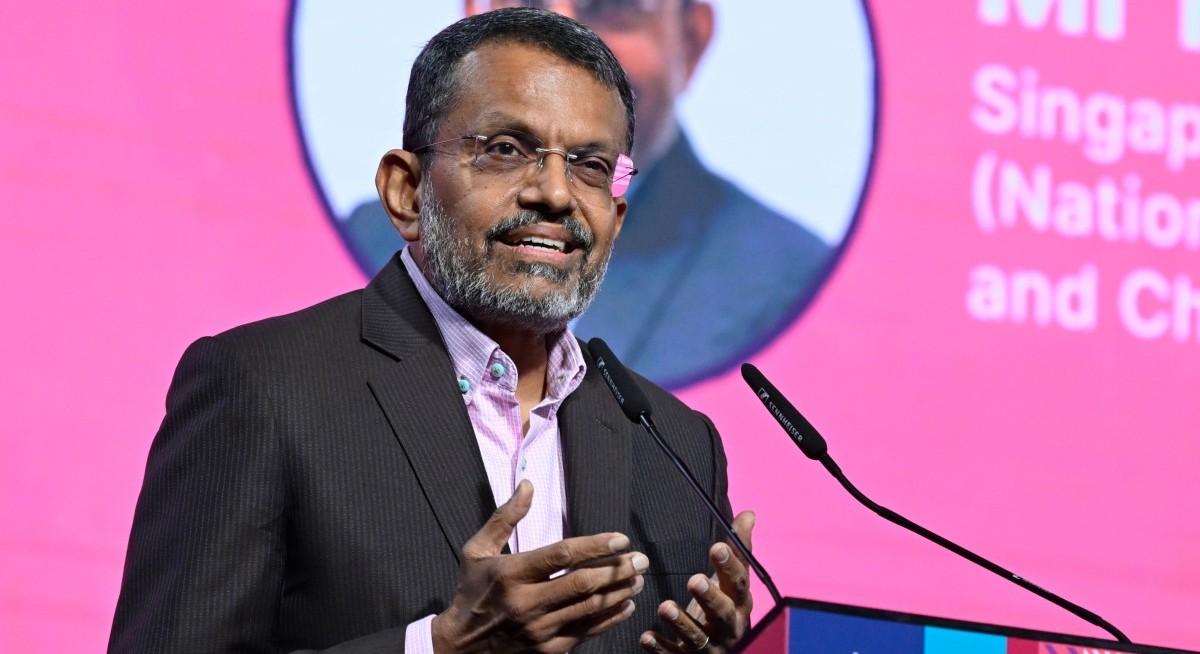SGX RegCo and Acra announced on Aug 25 a five-year delay for small- and mid-cap Singapore-listed companies to report full climate disclosures, along with other extensions for listed and non-listed companies.
“Some of you may be wondering if this is a sign that Singapore is softening its commitment to sustainability reporting, or even climate ambition more generally,” says Menon. “This is not at all the case.”
Speaking at Singapore Institute of Directors’ (SID) Directors Conference 2025 on Sept 12, Menon says sustainability reporting “remains important and is here to stay”. “There is no change in the direction of travel, only the pace.”
Many companies are still in the process of building up the capabilities required to comply with the high reporting standards of ISSB, and regulators are giving them more time to do so, says Menon, the former managing director of the Monetary Authority of Singapore (MAS). “We do not want reporting for its own sake, we want high-quality reporting that will provide useful information to stakeholders.”
Differentiated approach
Menon notes that the revised timelines takes a “differentiated approach” by taking into account the size of the company and by mandating various scope of reporting.
See also: SGX RegCo’s climate reporting extension ‘very generous’, say experts
SGX RegCo’s update splits the local listed company universe into three groups: Straits Times Index (STI) constituents, non-STI constituents with a market capitalisation of $1 billion and above, and non-STI constituents with a market cap below $1 billion.
The timeline for all categories of reporting remains unchanged for STI constituents, which make up 75% of total market capitalisation. Singapore’s 30 largest listed companies by market cap must report their Scope 1 and 2 emissions and “other” ISSB-aligned climate-related disclosures from FY2025, followed by their Scope 3 emissions from FY2026.
According to Menon, these STI constituents operate in global export markets or supply chains and need to account for their carbon intensity and transition plans “as soon as possible”. “Their climate-related risks have larger financial implications.”
The “other” ISSB disclosures refer to how companies manage their climate-related risks and the metrics they use to measure progress. These disclosures are “not as easy to do”, says Menon. “Only 16% of listed companies provided full details on how climate-related factors were integrated into their financial planning. They need a longer runway to develop their planning and reporting capabilities.”
Menon adds: “We are giving these companies time to build up their capabilities… But by FY2030, all listed and large non-listed companies will have to make these other ISSB disclosures.”
Alongside SGX RegCo’s announcement, Acra also granted large non-listed companies a three-year delay for climate reporting.
See also: Carbon accounting tools Gprnt, SEFR, ESGenome help firms calculate emissions
Non-listed companies with annual revenue of at least $1 billion and with total assets of at least $500 million now have until FY2030 to issue ISSB-based climate-related disclosures, including their Scope 1 and 2 emissions. They will have to seek external assurance for their Scope 1 and 2 emissions from FY2032.
“The previous timelines applied equally to all aspects of the ISSB standards and to all listed companies,” says Menon. “By taking a more differentiated approach, we are aiming to achieve sustainability reporting in a progressive manner, broadening the scope of reporting and extending to more companies over time.”
Scope 3 databases
Another “key difference” in the revised reporting requirements applies to Scope 3 emissions, or emissions generated along the supply chain, says Menon.
While STI constituent companies will have to report this by FY2026, there is no fixed timeline for non STI-constituent companies.
In FY2024, only 29% of listed companies disclosed Scope 3 emissions, Menon notes. “Measuring Scope 3 emissions is very difficult. Most companies do not have a comprehensive view of all their product components that are manufactured beyond Singapore’s borders.”
According to Menon, one possible solution is to rely on third-party emission factor databases. “But many of these databases are from the US and Europe and may not apply well to Singapore.”
In October 2024, the Singapore Business Federation (SBF) launched the Singapore Emission Factors Registry (SEFR) with over 200 emissions factors over eight categories — building equipment, building materials, fuel, greenhouse gases, land transport, purchased energy, waste and water — calculated with Singapore’s context in mind.
SBF said then that it would add new emissions factors for information and communications technology services, cleaning services, professional services and security services by end-2025, in time for FY2025 reporting. Work is still ongoing for this.
Menon notes that it will “take time” for SBF to build the database to cover Scope 3 emissions.
Table: SGX RegCo, Acra
Photo: Albert Chua/The Edge Singapore
Read more about Ravi Menon:
‘Nature is more powerful than politics’ says Ravi Menon, as Singapore, UK double down on climate action (September)
Time for philanthropy to play larger role in climate change in Asia: Ravi Menon (May)
Read more about how Singapore is adopting the ISSB standards:
SGX RegCo’s climate reporting extension ‘very generous’, say experts (September)
Nearly all listcos have begun climate reporting; SGX RegCo still mulling Scope 3 roadmap (March)
SGX RegCo will require ISSB-aligned climate-related disclosures from all listed issuers starting FY2025 (September 2024)
‘Huge momentum’ in Asia for ISSB adoption, says vice-chair of climate reporting standards body (September 2024)
SGX RegCo launches consultation on incorporating ISSB standards into sustainability reporting rules (March 2024)
Large private companies must report annual climate-related disclosures from FY2027: Acra, SGX RegCo (February 2024)
SGX RegCo to seek feedback by year-end on mandating ISSB-aligned climate reporting (September 2023)
ISSB standards 'best chance we have' at consistent sustainability reporting: SGX RegCo (July 2023)
ISSB issues inaugural standards, creating common language for climate-related impact on companies (June 2023)




